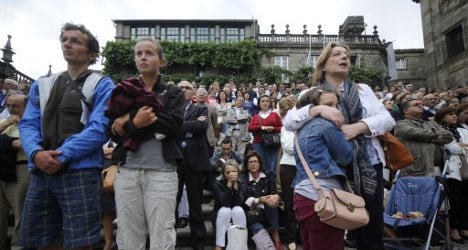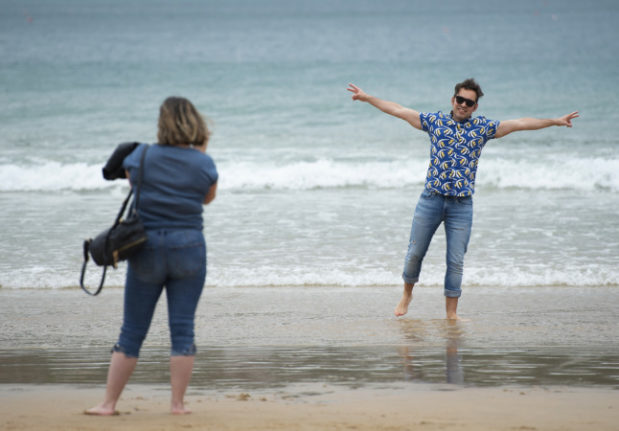Members of the royal family and government joined grieving families and locals in the city's great yellow-stone cathedral as the bells sounded a slow funeral toll for those killed in Wednesday's crash.
The driver is accused of causing the crash and has been bailed on charges of reckless homicide.
Mourners bowed their heads and wiped away tears as Julian Barrio, archbishop of the city in the northwestern region of Galicia, prayed for the dead, dressed in his blue robes and white mitre.
"Families who have lost your loved ones, from the first moment we have had you in our hearts, as have Galicia and Spain, and so many people beyond our borders who have asked me to pass on their condolences," he told the congregation.
"We commend our brothers to the mercy of God."
The heir to the Spanish crown Prince Felipe, his wife Princess Letizia and his eldest sister Elena, dressed all in black, sat solemnly before the high gold altar.
Also under the towering arches of the cathedral — one of the spiritual hearts of Roman Catholic Spain — sat Prime Minister Mariano Rajoy, a native of the city, government ministers and regional officials.
Emergency workers stood in their red and yellow vests as a choir sang mournful hymns and Barrio broke bread and held communion.
Locals and visitors including foreign pilgrims to the city stood to pay their respects outside the cathedral, at whose gates were placed flowers, candles and handwritten messages of condolence.
A crowd watched the service on a giant outdoor screen nearby.
"I have come because I am from Santiago and because there are people close to me who died in the crash and I know their families," said Mari Carmen Figueroa, 60, outside the cathedral.
"Even if I hadn't known them, I would have come."
Most of the dead were buried over the weekend in various parts of Spain.
Regional health authorities said 69 people caught in the crash were still in hospital on Monday, 22 of them in serious condition.
A judge on Sunday released the driver on bail on 79 counts of reckless homicide, said the regional high court.



 Please whitelist us to continue reading.
Please whitelist us to continue reading.
Member comments